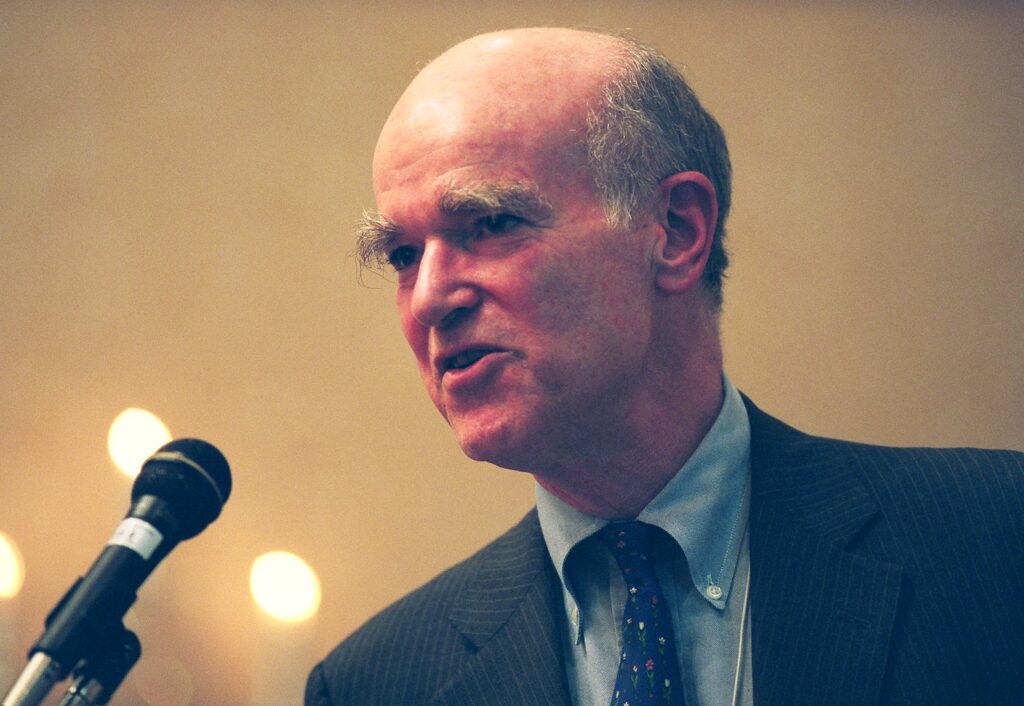Joel Fleishman, who died September 30 at the age of 90, is rightly being remembered as a man who was, in the words of the New York Times, “an unparalleled influencer among the nation’s wealthy and powerful.” Many of the beautiful obituaries and reflections on Joel’s life in recent days have also discussed his role as a scholar and author of, among other books, the tremendously important 2007 “The Foundation: A Great American Secret,” as well as an administrator and fundraiser at Duke University.
In addition, Joel was, in my view, the single most influential person behind the nurturing of a group of organizations and scholars that focus, in one way or another, on improving the practices of philanthropic and nonprofit organizations. He understood the need for institutions that create resources and knowledge to support philanthropic and nonprofit staff and boards to learn and grow in their roles.
“So many institutions that thrive today began with a story about meeting Joel,” Bridgespan co-founder Jeff Bradach wrote on LinkedIn last week. “There would be no Bridgespan without Joel Fleishman.”
The same is true of the Center for Effective Philanthropy (CEP). From his perch at Atlantic Philanthropies, Joel provided a lead grant of $145,000 to CEP in 2001 and that funding, together with additional $100,000 grants from Packard and Surdna foundations, allowed a founding board to hire a first staff member that summer. Joel believed in me, an inexperienced 31-year-old executive director of an organization with only a vague sense of what its role might be, more than ever made sense to me. He generously offered wise counsel, and innumerable introductions, in those early days.

If I could boil down his advice to one word it was this: listen. He knew that CEP’s success would lie in our ability to understand and respond to the needs and frustrations of philanthropic leaders by providing resources that would help them in their work. I learned that I need not go into meetings with answers; but I did need to have good questions.
Joel’s excitement was palpable when, based on our many discussions with leaders he connected us to, we began to develop comparative data sets that would allow foundations to analyze their approaches relative to each other in various ways. In April 2002, as our organizational bank account dwindled to concerning levels (we were up to four staff at that point), I felt emboldened to pitch him, following a little presentation on our progress in our first eight months of work, for $900,000 in unrestricted support over three years.
His immediate “yes,” from behind a desk in his New York office that was stacked high with reports and papers, changed our organizational trajectory. He joined our Board a few months later, serving for seven years and acting as a force of stability when, in 2004, CEP’s founding board members departed amid considerable drama.
“Visionary guy who took action,” Phil Giudice, who served as CEP’s Board Chair from 2005-2008 texted me (quoting here with his permission). “Kind and wise. Always curious and unassuming too.”
I can think of no person who has done more to influence big foundations to improve their practices, nor anyone who has done more to help explain — to countless students, to the media, and to anyone else who would listen — why foundations matter. He was so influential in both efforts because his strong perspectives were rooted in deep knowledge and experience, but also because he so obviously came from a place of passionate belief that philanthropy has, in fact, made the world better and more just. Indeed, his book “The Foundation” documents this powerfully. As a result, and because of the trust and relationships he built, Joel’s perspectives — his critiques of philanthropy, his defenses of philanthropy, his calls for action — landed in a way few others’ have.
His influence was unmatched. But so was his kindness.
Joel’s relationship with CEP did not end when he left our board in 2009. He always kept in touch, sent us his incredible end of year letters (full of inspiration from his deep Jewish faith as well as his own observations about life and the world), and was ready to help lend a hand to support us in any way he could.
Tia King-Fontanez, who worked at CEP from 2006 to 2019 and served as my assistant and as staff to the Board of Directors, was one of the first people who texted me when the news came out last week. It hit her hard, she said, and so we texted about some of the adjectives that come to mind when we think of Joel (again, quoting with permission) — too many to mention. But among the words she used were: “kind,” “thoughtful,” “wise,” “faithful,” and “dedicated.”
I couldn’t agree more. His memory is a blessing — and his legacy an inspiration.
Phil Buchanan is president of CEP, author of “Giving Done Right: Effective Philanthropy and Making Every Dollar Count,” and co-host of the Giving Done Right podcast.


